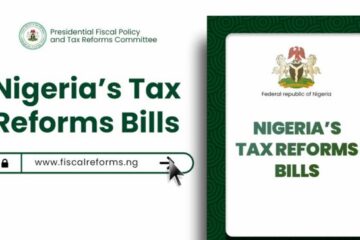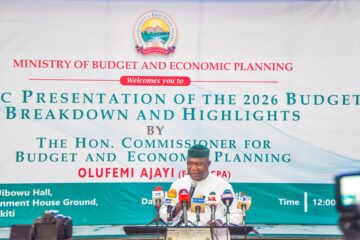
Emefiele
The Governor of the Central Bank of Nigeria, Godwin Emefiele, has said the bank would work with law enforcement agencies like the Economic and Financial Crimes Commission and the Independent Corrupt Practices and Other Related Offences Commission, to complicate and track large withdrawals.
He said this while briefing the press after unveiling the new Naira banknotes in Abuja on Wednesday.
At the briefing, Emefiele said the amount of money that can be withdrawn from the counter would be reduced drastically, adding that bulk withdrawals would require several procedures and security checks to track use.
He said this would ensure a steady transition into a cashless economy.
“There is no economy imbued with the thinking that it has to be a cash economy; the world has moved from predominantly cash to a cashless economy. And I think Nigeria and the Central Bank of Nigeria are prepared to move towards a cashless economy. And that is why following the redesign and issuance of this note, we will insist that cashless will be nationwide.
“We will restrict the volume of cash that people can withdraw over the counter. If you need to draw large volumes of cash, you will fill out uncountable forms; we will take your data, whether it’s your BVN or NIN so that our law enforcement agencies like EFCC and ICPC can follow you and be sure that you are taking that money for a good purpose,” Emefiele said.
He also noted that this move alongside the redesigned notes would ensure that the apex bank has ample control over the amount of money in circulation.
The CBN Governor further argued that the new move is not targeted at anyone while noting that the past attempts to redesign the naira notes were resisted.
According to him, “The Central Bank of Nigeria, by law, has the mandate to reissue and redesign currency for the country, and for Nigerian people, every five to eight years. And I want to hope that after the event of today, the Central Bank of Nigeria can take it as part of its programmes to see that the currencies are designed or reissued every five to eight years.
“It is mainly because the central bank should be able to control the size of currency in circulation fully. That is the actual mandate of the Central Bank of Nigeria because it has implications for monetary policy management in the country.
“There is no need for anybody to think this program is targeted at anyone. Like you heard the President, he said, this discussion to redesign and reissue currency started early in the year.”











